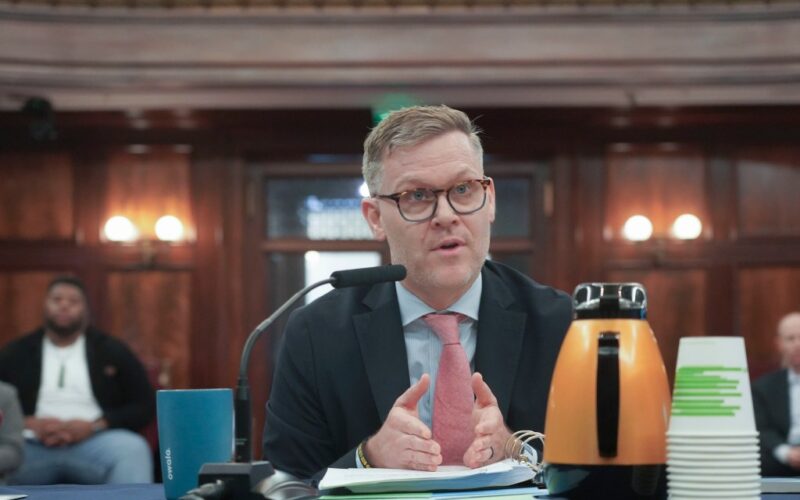New York City plans to pony up new funding for child care assistance, narrowly avoiding a doomsday scenario for now where tens of thousands of families could have lost access to their vouchers.
During a City Council hearing Monday on the budget of the Administration for Children’s Services, the city agency that issues the subsidy, Commissioner Jess Dannhauser said lawmakers could anticipate local investments that unlock matching funds from the state.
“Does that mean that we should fully anticipate that the [funding] will be included in the city’s adopted budget in June?” asked Councilman Lincoln Restler (D-Brooklyn).
“The conversations we’ve had with OMB, that is our expectation,” said Dannhauser, referring to the Mayor’s Office of Management and Budget. The commissioner offered the caveat, though, that their ability to provide families with vouchers is still subject to change based on federal and state policies.
The popular Child Care Assistance Program was on the brink of a crisis earlier this year when state funding for assistance failed to keep pace with growing demand — threatening to kick 4,000 to 7,000 children off vouchers each month when their parents were due for annual recertification.
Defending the growing costs as unsustainable for the state to shoulder alone, Gov. Hochul put forward a deal with the Legislature where New York City could draw down an additional up to $350 million — so long as it matches the commitment in the municipal budget. The city was the only county statewide that had to up its investment in order to qualify for the new funds.
Despite the offer on the table, no funding for the vouchers was included in Mayor Adams’ executive budget plan. In the weeks that followed, City Hall froze new enrollment in the voucher program for families not federally mandated to receive the assistance. Local officials also mounted a last-ditch appeal to Albany for more funding, which proved unsuccessful.
But the state did approve a plan late Sunday night that will allow ACS to continue serving the “vast majority” of children that currently have vouchers, Dannhauser revealed at the hearing. Under the terms of the agreement, families in three priority groups — under 300% of the federal poverty line, homeless or with disabilities — will be eligible for recertification. Previously, any family making less than 85% of the state median income qualified for the subsidy.
The change in eligibility requirements is expected to result in a total of 2,000 low-income children losing their vouchers, out of nearly 70,000 enrolled with the at-risk subsidy.
“By and large, we’re able, for the time being, to achieve continuity. But I have to say, the state has really stuck the city with the bill,” Dannhauser said. It was not clear Monday if and when the waitlist can be opened, though he promised to “keep a close eye” on the matter.
Under the state budget deal, New York raised how much the city has to contribute to the voucher program by 518% — from $53 million to $328 million. Only when the municipal budget hits that minimum will the city be able to unlock the one-time state matching funds, according the commissioner, which apply to every dollar over the former base.
“Who came up with this [ridiculous] process?” said Councilman Justin Brannan (D-Brooklyn), chair of the finance committee.
Ahead of the hearing, dozens of child care advocates and children rallied on the steps of City Hall, calling on city lawmakers to invest in afterschool programs and child care vouchers.
“The state has made a commitment of funds to support the child care assistance program, but it requires the city to match it, and we need the city to do its part,” said Gregory Brender, chief policy and innovation officer of the Day Care Council of New York.
Annie Minguez, director of government and community relations for Good Shepherd Services, also urged the city to invest in the vouchers: “We want to work with the city to ensure that happens,” she said, calling the alternative “devastating.”
A final city budget is due at the end of next month.








